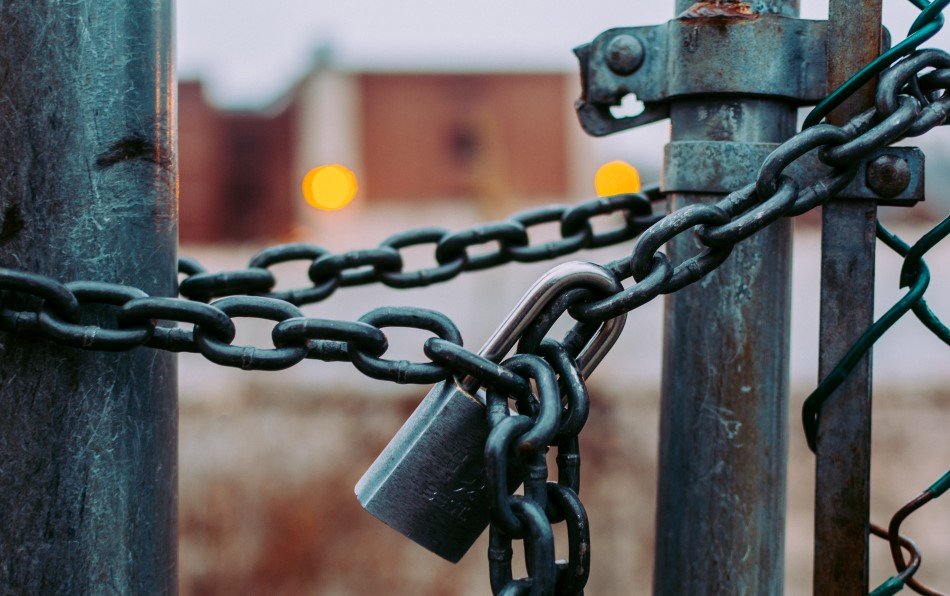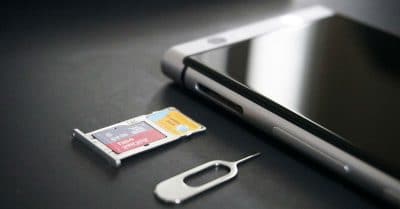Keep Your Smartphone Safe
A phone is a big investment. Spending hundreds of pounds on a gadget is pretty justifiable when you think about how much we all depend on our mobiles. However, if that gadget gets lost, broken or stolen, that money is wasted, and you're out of pocket. Not only that, but since our phones contain so much personal information a stolen phone can mean hacked accounts, identity theft, and losing even more money. That's why we're looking at phone security. We've got absolutely everything you need to know about keeping that expensive phone safe. Of course, there are no guarantees, but at least you'll know you've done everything possible to protect your investment.
General Phone Security Tips
Let's start out with the easy stuff. Most of this is common sense, but it still bears repeating. These are the real basics:
- Don't leave your phone unattended. Ever.
- Don't carry your phone in your back pocket (keep it in a zipped or closed bag or an inside pocket).
- Don't let anyone else see your passwords/passcodes (and be aware that in public potential thieves may be watching over your shoulder to get that lock code).
- Don't risk it (going to a club? hitting the bars? leave that phone at home, use a cheap burner phone if necessary).
- Don't leave your phone unprotected (in any way, shape or form).
So, that's the easy stuff. But we can do much better than that. Before we get into theft and serious security issues, first let's deal with the most common way that most people lose that investment: breakage.
Protecting Against Breakages
We get it, we really do. That new phone is nice and shiny and looks and feels good and you don't want to put a case over it. That's your choice, but the truth of the matter is that if you want to keep that phone looking nice and shiny and perfect then a case is really the way to go. A simple case will protect against accidental drops (and we all drop our phones). If you're looking for something a bit more hardcore, then check out the Defender cases from Otterbox. If you're frequently around water then there are also plenty of waterproof cases available (yes, even if your phone is already certified as waterproof, it never hurts to be sure).
Alongside that case, a decent screen protector is also going to be necessary. This will help to stop your screen shattering if your phone is dropped. There are tons of versions around, ranging from cheap plastic alternatives (which are fine) to more expensive glass ones.
Like it or not, putting cases and screen protectors on your phone is a good thing and could end up saving your device in an accident. But what if rather than being dropped, your phone is stolen?
Stolen Phones: Tracking
It's tough to say exactly how many mobiles are stolen in the UK since many thefts go unreported. One source says 314 phones are stolen in London per day, whilst this says that one in six Brits have had a phone stolen in the last year. Phones get stolen and no matter how careful you are it could happen to you.
One of the best things that you can do is install a tracking programme on your phone. This will allow you to know where your phone is and can help police recover a stolen phone. Okay, so it's not that often that phones get recovered, but there's a more important factor here. Most good phone tracking apps let you remotely lock or wipe your device, meaning thieves won't have access to your data.
Installing tracking apps is easy, but obviously needs to be done BEFORE your phone gets stolen (which means that you should do it now). Check out Cerberus and Pre Anti-Theft if you're looking for some good apps. Additionally, Apple has their own built-in phone tracking app for iPhones (called “Find My Phone,” go to Settings, hit your Apple ID at the top, then iCloud, then Find My Phone). And Androids also let you track your phone, simply go into Settings, Security, Services, then hit “Remotely Locate This Device.”
Passwords and Passcodes
Having tracking enabled is all very well, but you might not necessarily notice that your phone has been stolen until thieves have already had access to it. That means that good passwords and passcodes are essential.
Your phone itself should have a lock screen enabled. For most brands of phone, you'll find this under Settings, Display, then Lock screen. Ensure that you enable this and set up a code or pattern to open your phone (passcodes are better and more secure). If possible also set up your fingerprint scanner or iris scanner to open your phone (you'll probably find this under Security in your Settings menu).
Locking your phone isn't enough though. Your apps should also have passwords and where possible two-factor authentication. This is especially true for apps that have personal info, such as banking apps, but also for those that are attached to payment systems (think Amazon and the like). Hold up though, you don't just want any password. A good, strong password:
- uses a mixture of letters, numbers and symbols
- uses no personal info (so not your birthday or dog's name)
- has at least 8 characters
- preferably contains no real words
Even better, a password that's randomly generated (i.e. that's complete nonsense) is very strong. Oh, and every app should have a different password.
Wondering how on earth you're supposed to remember all those passwords? Try downloading a good password manager app. These apps will remember all your passwords for you and enter the information when necessary (you'll need to remember the password manager password though, so you're not completely off the hook). They'll also randomly generate passwords if you need them. Check out LastPass or Dashlane for good password manager apps.
Mobile Anti Virus
Thieves aren't always people who nick your phone out of your bag. Some thieves are more technological than that. Mobiles can and do get hacked, and they do get viruses that can destroy or steal information (yes, even iPhones). For that reason, a good anti-virus app is a smart idea.
Installing an anti-virus app is simple and once you've downloaded and opened it you shouldn't have to do much more. Do be aware that running an anti-virus can make your phone a little slower (especially when powering on or when opening new apps) since the anti-virus programme will need to scan your device before performing an operation. This slowness shouldn't be too noticeable though. What are good anti-virus options? Check out Avast Mobile Security for a good free option, or Bitdefender if you're willing to pay a little.
What About Mobile Insurance?
You've done everything you can to keep that phone safe and secure, but you know that accidents happen and thieves are everywhere. So what about buying some mobile insurance so that if anything does happen you get your money back? Mobile insurance is a bit of a tricky issue, and the choice is completely yours, but in general,l mobile insurance is NOT a good idea.
Why? Well, it's expensive and it rarely covers the whole price of your phone. Plus, many specific mobile insurance policies don't cover a lot of events (for example they might not cover water damage or even theft if your phone wasn't provably in a safe place when it was stolen).
Does that mean that you shouldn't have any insurance at all and should just hope nothing goes wrong? Not at all. In fact, there are a couple of solutions to this problem. The first is to check out your credit card company. If you buy your phone using your credit card many companies offer free automatic insurance on purchases (not all do though, so check carefully). Secondly, check your home or renter's insurance, since these also often cover mobile phones or are willing to add mobiles for a small price increase.
Even if your home insurance or credit card don't cover your mobile, specific mobile insurance is probably not a great idea. You're better off putting that five or ten pounds a month into a piggy bank and using it only if something happens to your phone since many mobile insurance claims fail to pay out.
Phone Security: Bottom Line
So, that's all you need to know. We can't guarantee that your mobile is completely safe and secure, but the above tips will help. Be safe out there!




